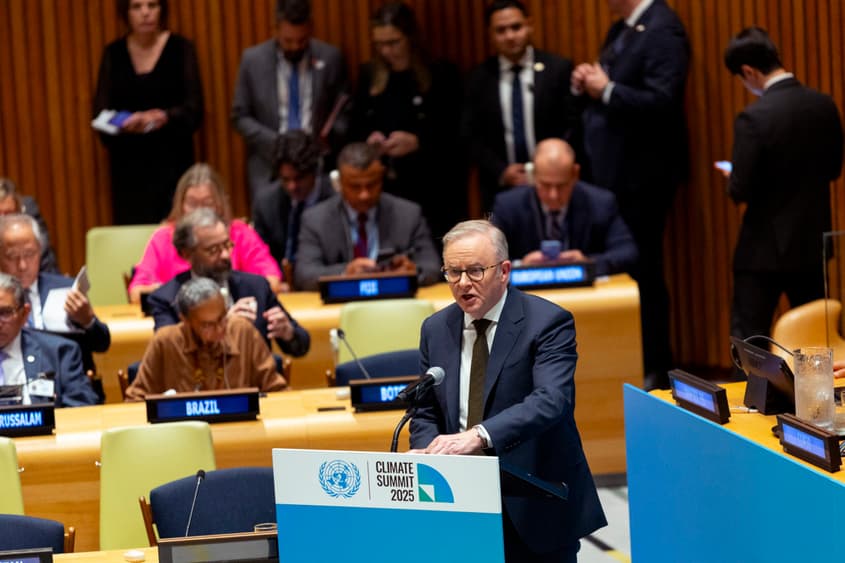It comes after years of research and evidence that shows the best way to limit the devastating impact of climate change is to phase out the burning of fossil fuels.
Thu 25 Sep 2025 10.00

AAP Image/Pool, Dominic Lorrimer
The governments of Columbia and Vanuatu have publicly announced a plan to host the First International Conference for the Phase-Out of Fossil Fuels in April, 2026.
The announce came at United Nations Headquarters in New York.
Earlier this week, the Columbia government announced its intention to host the conference next year.
It comes after years of research and evidence that shows the best way to limit the devastating impact of climate change is to phase out the burning of fossil fuels.
Leanne Minshull, of The Australia Institute, welcomed the news.
“Many UN treaties began from countries working outside the formal process, building momentum until the formal processes finally, sometime begrudgingly, adopted them,” Ms Minshull said.
“My hope is that this announcement, this week is the beginning of the end for Australia’s – and the world’s – fossil fuel industries.”
Ms Minshull said the conference provided Australia with an opportunity to show “genuine climate leadership”.
“Missing this opportunity would expose our bid to host COP31 in late 2026 as an exercise in greenwashing rather than real action,” she said.
“The Australia Institute has been working to phase out fossil fuels for decades. We launched our No New Coal Mines work at the 2015 Paris COP meeting, supported by then-President of Kiribati, Anote Tong.”
In 2015, executive director of the Australia Institute, Richard Denniss wrote a foundational academic article on the benefits of reducing fossil fuel supply.
That paper remains among the top 1% of cited articles on climate policy from that time.
“The Australian Government can’t pretend it is tackling climate change while it keeps approving massive new coal and gas fossil fuel export projects,” Dr Denniss said.
Australia’s climate policies have attracted criticism from around the globe, particularly in the pacific.
In the space of two business days, the Albanese Government gave its approval to a 40-year extension of Woodside’s highly-polluting North West Shelf gas export hub, before releasing a National Climate Risk Assessment which detailed how climate change caused by burning fossil fuels is set to catastrophically alter the environment and the economy.
Days later, the Government announced its long-awaited climate target, promising to cut emissions by 62 to 70 per cent by 2035.
However, that target falls short of the 75 per cent target below 2005 levels, which would have broadly aligned with the science.
